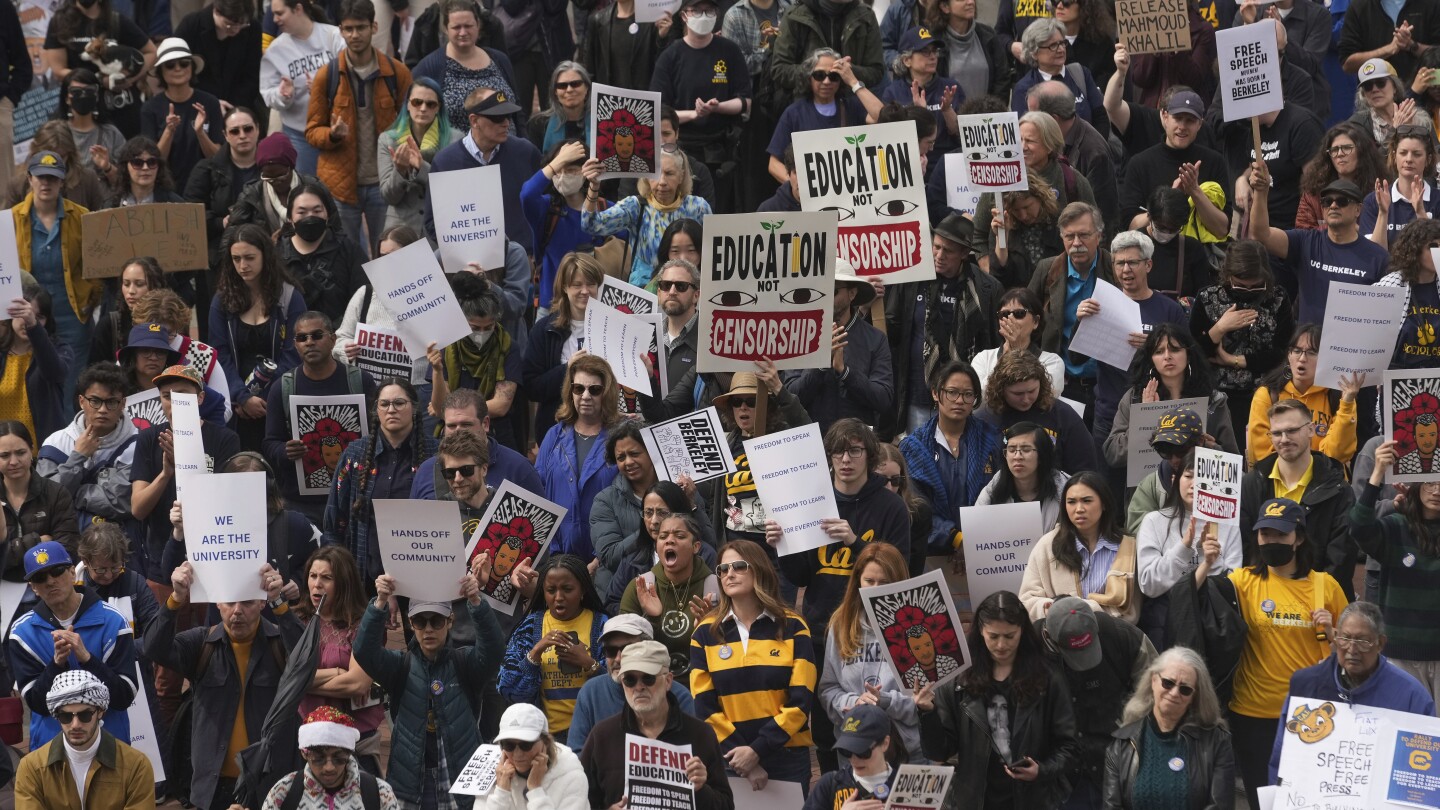The University of Kentucky (UK) is among several colleges and universities facing scrutiny and backlash for their involvement with The PhD Project, a nonprofit aimed at boosting diversity in business programs. This comes as the Trump administration intensifies its crackdown on diversity, equity, and inclusion (DEI) initiatives in higher education. The situation highlights the growing tensions between political agendas and academic institutions striving for inclusive environments. This article delves into the details of UK’s decision, the broader implications for other universities, and the reactions to this unfolding situation. We will explore the context of the Trump administration’s policies, the role of conservative activists, and the potential long-term effects on diversity programs in higher education.
The PhD Project, previously a low-profile organization supporting Black and Latino students in business, found itself in the crosshairs after conservative strategist Christopher Rufo spotlighted its activities on social media. His posts quickly gained traction among Republican politicians, leading to increased scrutiny of the program and its partner institutions. The U.S. Education Department initiated investigations into dozens of universities, citing alleged racial discrimination due to their ties with the nonprofit. This action followed warnings that schools could risk losing federal funding if they maintained “race-based preferences.” The department’s letters to universities demanded information about their relationship with the nonprofit by a deadline, adding urgency to the matter.
In response to the investigation, the University of Kentucky announced it would sever ties with The PhD Project. This decision reflects a cautious approach taken by many universities facing potential financial repercussions. The university’s official statement indicated a commitment to cooperating with investigators, but it offered little additional commentary on the reasons behind the split. This move aligns with a broader trend among institutions seeking to distance themselves from any programs that might be perceived as violating the administration’s stance on DEI. The swiftness of UK’s action underscores the pressure felt by academic leaders to protect their institutions’ financial interests. The decision was made amidst growing concerns about potential federal funding cuts.
The Trump administration’s actions have created a climate of fear and uncertainty within higher education. Colleges are wary of pushing back against the investigations, fearing potential loss of federal funding. Veena Dubal, general counsel for the American Association of University Professors, noted that universities are hesitant to be the “next example” of an institution facing severe financial consequences. This fear is compounded by previous instances where the administration has withheld funds over issues such as antisemitism allegations and policies concerning transgender athletes. The situation has led to a collective action problem, where individual institutions are reluctant to challenge the government’s actions independently, further entrenching the administration’s influence.
The campaign against The PhD Project gained momentum through social media, particularly on platforms like X, where Christopher Rufo highlighted the program’s activities. In one instance, Rufo targeted Texas A&M for sponsoring a trip to a DEI conference, accusing the university of supporting racial segregation. Republican Texas Governor Greg Abbott responded swiftly, threatening the university president’s position unless the matter was “fixed.” Consequently, Texas A&M withdrew from the conference, followed by at least eight other Texas public universities. This illustrates the significant impact of social media campaigns and political pressure on higher education institutions, influencing their decisions regarding DEI programs and affiliations.
The U.S. Education Department is investigating a range of institutions, including public universities like Arizona State, Ohio State, and the University of California, Berkeley, as well as private schools such as Yale, Cornell, Duke, and MIT. These universities received letters informing them of complaints and investigations into alleged racial discrimination due to their past affiliations with The PhD Project. Some of the investigated schools have expressed surprise and confusion, stating that they were unaware of any internal complaints. Montana State University, for example, emphasized its compliance with state and federal laws and its lack of knowledge regarding any complaints related to the PhD Project. The extent of universities under investigations is a clear indication of how far-reaching the campaign against DEI in higher education has become.
In response to the investigations, some universities have begun to mount defenses. At the University of California, Berkeley, hundreds of faculty members organized a protest, emphasizing the importance of academic freedom. Professor Ula Taylor of African American studies stated that academic freedom was under assault. Berkeley Chancellor Rich Lyons also issued a campus email, describing the government’s actions as a threat to the school’s core values, underscoring the seriousness of the situation. These reactions illustrate the commitment of some academic communities to defending their values and resisting what they see as unwarranted government intrusion. The defense against the DEI crackdown is not limited to the leadership, but also resonates strongly within faculties and students, which are willing to stand up against what they perceive as a threat to these values.
The University of Kentucky’s decision to sever ties with The PhD Project reflects a broader trend of universities navigating the turbulent waters of political scrutiny and federal investigations. The Trump administration’s crackdown on DEI programs has instilled a climate of fear and uncertainty within higher education, forcing institutions to make difficult choices to protect their financial interests. As social media campaigns and political pressure continue to influence decisions, the future of diversity initiatives in higher education remains uncertain. The events surrounding The PhD Project serve as a reminder of the ongoing challenges faced by universities striving to create inclusive and equitable environments amidst a politically charged landscape. Only time will tell the long-term impact that these challenges may hold.

Leave a Reply